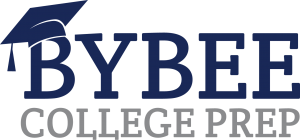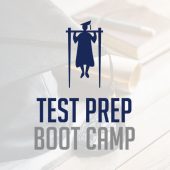The AI Shortcut: Why Students Are Struggling on Standardized Tests
In the age of artificial intelligence, students have unprecedented access to tools that can assist with their academic work. While these tools offer numerous benefits, a growing concern is emerging: students are increasingly relying on AI to complete assignments, leading to a decline in critical thinking skills and underperformance on standardized tests like the SAT and ACT.
The Rise of AI in Education
Recent studies have highlighted a trend where students use AI not just as a supplementary tool but as a primary means to complete assignments. For instance, research indicates that students often use AI to generate essays or solve complex problems, bypassing the learning process entirely. This reliance on AI can lead to a superficial understanding of the material, as students are not engaging deeply with the content.
 The Illusion of Academic Success
The Illusion of Academic Success
Parents and educators might observe consistent grades and assume students are grasping the material. However, these grades can be misleading. When students use AI to complete assignments, they may achieve high marks without truly understanding the subject matter. This creates an illusion of academic success, masking underlying gaps in knowledge and critical thinking skills.
The Standardized Test Reality Check
The consequences of over-reliance on AI become evident during standardized testing. Unlike regular assignments, standardized tests assess a student’s ability to apply knowledge and think critically under pressure. Students who have not engaged deeply with the material often find themselves unprepared, leading to lower scores. This discrepancy between assignment grades and test performance can be jarring for both students and parents.
The Importance of Critical Thinking
Critical thinking is a skill developed through practice and engagement. When students delegate their thinking to AI, they miss out on opportunities to develop this essential skill. Over time, this can impact their ability to analyze information, solve problems, and make informed decisions—skills that are crucial not just academically but in everyday life.
Moving Forward: Encouraging Authentic Learning
To address this issue, educators and parents can take proactive steps:
-
Promote Active Engagement: Encourage students to use AI as a tool for learning, not just for completing tasks. For example, using AI to explore different perspectives on a topic can enhance understanding.
-
Emphasize the Learning Process: Focus on the importance of the learning journey, not just the end result. Discussing the steps taken to arrive at an answer can reinforce understanding.
-
Implement AI Usage Guidelines: Schools can establish clear policies on acceptable AI use, ensuring students understand when and how to use these tools appropriately.
-
Provide Support and Resources: Offer resources that help students develop study skills and critical thinking abilities, reducing the temptation to rely solely on AI.
Conclusion
While AI offers valuable support in education, it’s essential to ensure that it complements rather than replaces the learning process. By fostering an environment that values critical thinking and authentic engagement, we can help students develop the skills they need to succeed academically and beyond.
Take the First Step Toward College Success!
Planning for college can feel overwhelming, but you don’t have to do it alone. Schedule a free 30-45 minute introductory consultation with a college admissions expert to create a personalized roadmap for your student’s future.
📅 Book your consultation today: Click here








